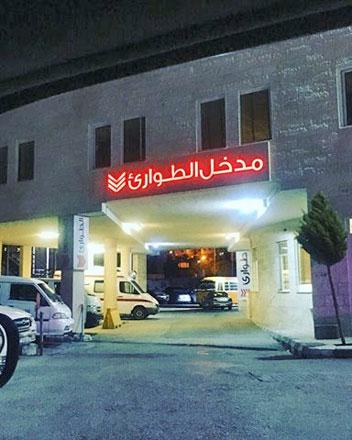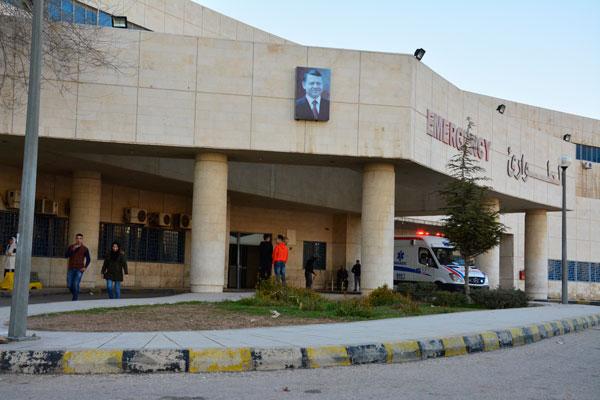You are here
Medical tourism visa procedure changes ‘still need additional steps’
By Mohammad Ghazal - Mar 14,2018 - Last updated at Mar 14,2018

Jordan is considered as a leading medical tourism destination in the region due to its highly qualified physicians, modern hospitals and accreditation programmes, among others (Photo by Osama Aqarbeh)
AMMAN — Experts from the medical tourism industry on Tuesday voiced mixed reactions towards the government's decision to ease procedures for foreign patients in order to enhance medical tourism in the Kingdom.
"Adding more nationalities to the list of nationalities that will have easy visa procedures is a positive step… The list now includes eight nationalities that used to be restricted nationalities but now have eased visa procedures," Private Hospitals Association President Fawzi Hammouri told The Jordan Times on Tuesday.
"Providing eased visa procedures for nationals living in the Gulf states and other countries is also a positive step that will help increase the number of foreign patients coming to Jordan for treatment," Hammouri said.
On Monday, the Cabinet decided to add patients coming from Nigeria to the new list, which only requires a 2-day application or grants them entry visas on the same day in cases of emergency.
As per the decision, Nigerians will join the nationalities that used to be restricted but have been granted eased procedures to enter the Kingdom for medical purposes.The other nationalities are Sudanese, Libyans, Yemenis, Iraqis, Syrians, Chadians and Ethiopians.
The regulations also removed restrictions on patients from restricted nationalities with permanent residency in the Gulf countries, the US, Canada, Australia, Japan, EU countries, Switzerland, the UK and South Korea.
"What is good about the Cabinet's decision is that procedures will go into effect anytime this week," Hammouri, said, adding that a marketing campaign will start in the eight countries that were added to the list.
However, he noted that the government's decision to allow each patient to be accompanied by a maximum of four family member chaperons, in addition to two children, was "not a positive" step.
"Why limit that to relatives of the first degree? A patient might be accompanied by a cousin or an uncle so, what to do in this case… why take a step forward and a step backward?" Hammouri asked.
Abdullah Hindawi, an international medical tourism expert, said easing visa restrictions was "a good step", but that it is not enough to help reverse the downward trend in the number of foreign patients seeking treatment in Jordan.
"Many of the foreign patients who stopped coming to Jordan did not do so only because of the visas, but because of the prices of the treatment," Hindawi told the Jordan Times.
"It takes patients 10-14 days to get a visa to India, but many are going there for treatment as the prices are cheaper than here," he said.
He commended the decision to ease visa procedures, but called for a strategy governing the medical tourism industry.
"We should also focus on penetrating new markets, especially in east Africa as the potential there is huge," Hindawi continued.
According to the expert, Jordan has "undoubtedly" been leading the regional medical tourism industry for many years due to the highly qualified physicians, modern hospitals, standards, quality, accreditation programmes and competitive costs compared to other regional and international destinations.
"Jordan has a great potential in central Asia Islamic countries such as Kazakhstan, Kyrgyzstan and Uzbekistan in both the medical and wellness sectors, if direct flights were to be launched to these cities," he concluded.
Related Articles
AMMAN — The number of foreign patients visiting Jordan for treatment is expected to increase following the implementation of a recent govern
AMMAN — The amended regulations governing the issuance of medical treatment visa were published in the Official Gazette on Thursday and, acc
AMMAN — The Global Healthcare Travel Forum (GHTF) has endorsed the "Amman Declaration" that seeks to expand the scope of medical tourism sec













